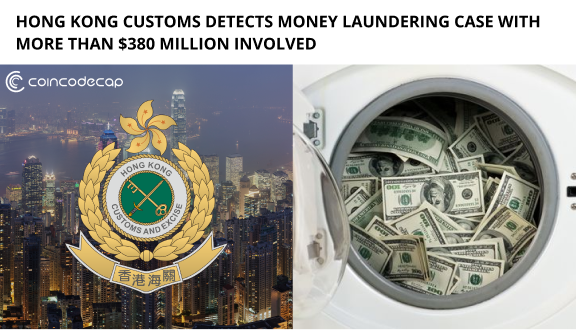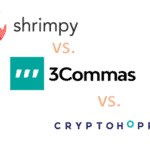Key Takeaways:
- Hong Kong customs detects money laundering case with more than $380 million involved.
- Acting upon intelligence, Customs officers targeted a woman and her younger brother.
- They were suspected of using personal bank accounts and a cryptocurrency exchange trading platform to deal with money from unknown sources and participate in money laundering activities.

In a press release published by The Government of the Hong Kong Special Administrative Region, it was informed that Hong Kong Customs arrested two people suspected of money laundering during an operation today. The money laundering amount was $384 million.
In addition, acting upon intelligence, Customs officers targeted a woman and her younger brother. They were suspected of using personal bank accounts and a cryptocurrency exchange trading platform to deal with money from unknown sources and participate in money laundering activities.
Customs raided a residential property in Yau Tong today after conducting extensive investigations. As a result, a 21-year-old man and a 28-year-old woman were arrested for “dealing with property known or reasonably believed to represent proceeds of an indictable offense” (commonly known as money laundering) under the Organized and Serious Crimes Ordinance (OSCO).
Further investigation revealed that the two arrested individuals opened personal accounts at various Hong Kong banks (including virtual banks) and a cryptocurrency exchange trading platform between May and November last year and engaged in suspected money laundering by dealing with money from unknown sources through bank transfers, cash deposits, and cryptocurrency.
An investigation is currently underway. The two people arrested have been released on bail pending the outcome of the investigation, but more arrests are possible. Under the OSCO, a person commits an offense if they deal with any property knowing or having reasonable grounds to believe that such property in whole or in part directly or indirectly represents any person’s proceeds of an indictable offense. Upon conviction, the maximum penalty is a fine of $5 million and imprisonment for 14 years, while the crime proceeds are also subject to confiscation.









